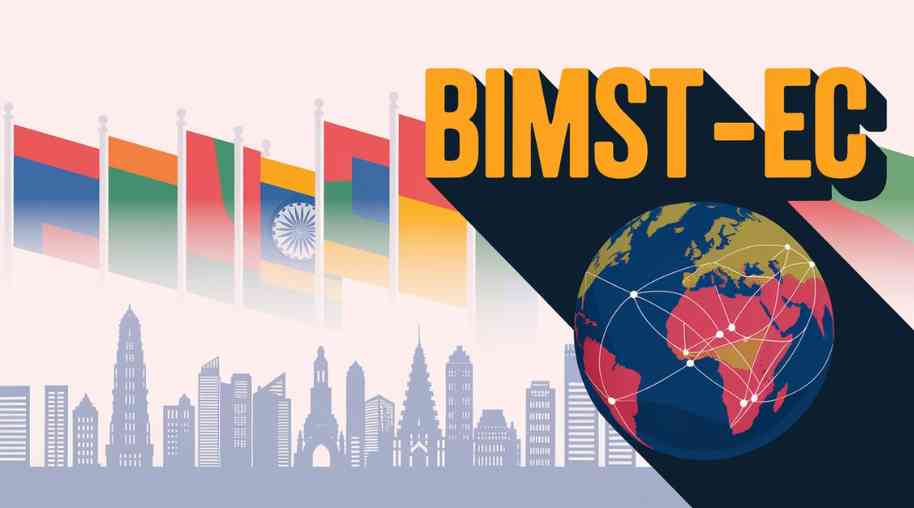BIMST Full Form - EC Bangladesh, India, Myanmar, Sri Lanka, Thailand Economic Cooperation
by Shashi Gaherwar
0 2089
BIMSTEC: A Regional Economic Cooperation Initiative
The Bangladesh, India, Myanmar, Sri Lanka, and Thailand Economic Cooperation (BIMST-EC) is a regional initiative aimed at strengthening economic ties and fostering growth among member nations. Initially formed in 1997, BIMST-EC has evolved into the Bay of Bengal Initiative for Multi-Sectoral Technical and Economic Cooperation (BIMSTEC), focusing on trade, investment, transport, and connectivity in South and Southeast Asia.

Objectives of BIMST-EC
- Enhancing Trade and Investment: Facilitating smoother trade flows and creating investment-friendly environments.
- Infrastructure and Connectivity Development: Improving transport and communication networks to boost regional integration.
- Sustainable Economic Growth: Encouraging balanced development across sectors such as tourism, energy, and technology.
- Strengthening People-to-People Ties: Promoting cultural exchanges and cooperation in education and research.
Key Sectors of Cooperation
- Trade and Investment – Removing trade barriers and encouraging cross-border investments.
- Transport and Connectivity – Developing roads, railways, and port infrastructure.
- Energy Cooperation – Sharing resources for sustainable energy production.
- Technology and Innovation – Enhancing digital collaboration and technology transfer.
- Tourism and Culture – Strengthening tourism-related economic growth.
Economic Significance
With a combined GDP exceeding $3.5 trillion, BIMST-EC holds immense potential for economic growth. Some key economic benefits include:
- Increased Trade Volumes: Trade among member countries has surged due to reduced tariffs and streamlined regulations.
- Foreign Direct Investment (FDI): Attracting investments from global markets.
- Infrastructure Expansion: New roads, bridges, and railways enhancing connectivity.
Challenges and Future Prospects
While BIMST-EC has seen progress, several challenges remain:
- Geopolitical Tensions: Political instability and border disputes affect smooth cooperation.
- Infrastructure Gaps: Many areas still lack modern transportation and digital connectivity.
- Regulatory Differences: Divergent trade policies create obstacles to seamless economic exchange.
Moving forward, BIMST-EC aims to strengthen policy alignment, deepen sectoral integration, and leverage emerging opportunities in digital trade and green energy.
BIMST-EC plays a crucial role in regional economic cooperation, fostering sustainable development and prosperity among Bangladesh, India, Myanmar, Sri Lanka, and Thailand. By addressing challenges and enhancing collaboration, BIMST-EC is set to become a key driver of economic transformation in the region.
Further Learning Resources
If you’re passionate about building a successful blogging website, check out this helpful guide at Coding Tag – How to Start a Successful Blog. It offers practical steps and expert tips to kickstart your blogging journey!
For dedicated UPSC exam preparation, we highly recommend visiting www.iasmania.com. It offers well-structured resources, current affairs, and subject-wise notes tailored specifically for aspirants. Start your journey today!

Share:









Comments
Waiting for your comments